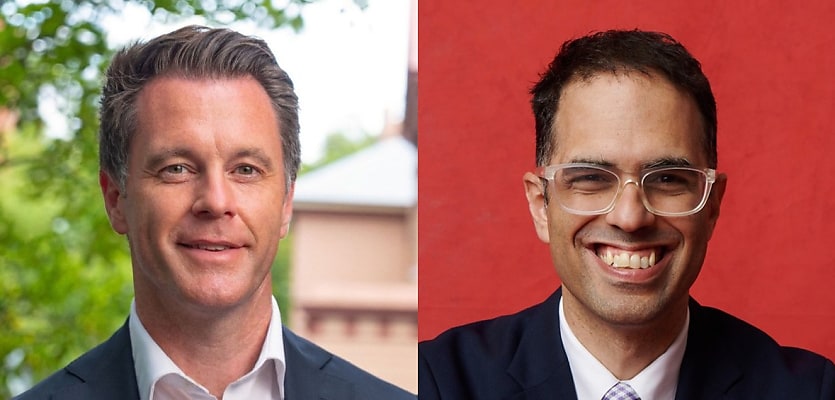With NSW home to the capital with the highest median home price in the country, the cost of housing has been an issue that many hope to see mitigated in the 2024–25 state budget.
NSW Premier Chris Minns and Treasurer Daniel Mookhey delivered a budget on 18 June that included a number of different approaches to address the state’s housing woes. Some are intended to strengthen enforcement of tenancy laws, while others are to assist in delivering supply that will ultimately cool the price accelerations in both sales and rentals.
The vast majority of the measures have been welcomed by residents, industry and the sectors that they target for assistance. Tax changes to help deliver some of these initiatives have been met with consternation from investor advocates, who argue the policy could have the effect of driving rents skyward.
Here are the full suite of property measures contained in NSW’s 2024–25 budget:
Rental taskforce
With an investment of $8.4 million, the state intends to establish a rental taskforce under the purview of the NSW rental commissioner. The body will include investigative personnel to follow up on reports of legal breaches, inspectors to target professional practice among the real estate industry, and support teams to engage with renters.
Altogether, it’s set to be one of the biggest groups within NSW Fair Trading, overseeing the practices of the biggest rental market in the country.
New homes for Sydney’s essential workers
In an attempt to address a housing issue that has been described as a “health crisis”, the Minns government has earmarked $450 million to build new apartments for essential workers in areas closer to central Sydney, to stem the staffing issues experienced by inner-city medical centres that are struggling to attract workers due to a dearth of affordable dwellings nearby. Schools, police and fire departments are also reportedly contending with similar issues.
Up to four new sites will be acquired by the NSW government’s residential development arm, Landcom, to construct more than 400 new build-to-rent units in the next three years that are intended to house nurses, paramedics, allied healthcare workers, teachers, police officers and firefighters. Once built, the homes will then be available to rent at a subsidised rate.
Rural health worker accommodation
Sydney-based essential services aren’t the only workers to receive targeted housing support. Also included in the budget is $200.1 million to provide approximately 120 dwellings – which may include building new accommodation, refurbishment of existing health worker accommodation, and possibly purchasing properties such as motels – to house health workers in rural areas.
The government has reportedly already identified a number of possible locations around Lismore, Lake Cargelligo, Tweed Heads and the Eurobodalla, with the state prioritising areas most in need of healthcare staff.
Speeding up DAs
To address bottlenecks that are slowing down the construction of homes in NSW, the state will devote $253.7 million to hiring more planners and acquiring technology to speed up the assessment of development applications.
Planners and other critical staff will be recruited to assess housing and infrastructure proposals across the state that often face long wait times, serving as a deterrent to construction or renovation.
The NSW planning portal will receive a portion of the funding to ensure it is up-to-date with the latest technology, while the state will continue to investigate how AI might assist in creating efficiencies along the development application pathway.
Helping the housing industry secure finance
The NSW government has announced it will launch a pilot program to provide a financing guarantee to developers wanting to pursue residential projects.
In the early stages of the project, the government will consider how it might act as a guarantor for some development loans when projects are assessed by financial institutions to satisfy debt requirements. NSW will also be looking into whether a government commitment to pre-purchase a specified number of houses in a development could provide confidence to lenders, developers and builders to fund and start construction.
Under this initiative, a review of the state’s housing supply issues will be led by the newly expanded Productivity and Equality Commission.
Increased investor taxes
The state land tax thresholds will be increased for the 2024 land tax year to $1.075 million as planned, at which point NSW will stop indexing the land tax threshold against price rises and it will remain fixed at the 2024 rate going forward.
The change applies to both the tax-free threshold and the premium rate threshold, with landlords, owners of holiday homes and businesses the ones to wear the tax, as primary residences as well as farms will continue to remain exempt. The move is expected to create approximately $1.68 billion in revenue over the next four years.
The plan has already been criticised by property industry bodies, with Katie Stevenson, the Property Council’s NSW executive director, stating the policy would “serve only to drive investors out of the market and potentially drive significant increases to both commercial and residential rental costs”.
Real Estate Institute of NSW CEO Tim McKibbin, meanwhile, called it “a tax grab by stealth and at a time when we desperately need to encourage investment in residential property, increasing tax will have the complete opposite effect”.
Additional tax changes will also impact international buyers, with the foreign purchaser duty surcharge set to increase from 8 per cent to 9 per cent beginning on 1 January 2025. The foreign owner land tax surcharge will also increase from 4 per cent to 5 per cent starting with the 2025 land tax year.
ABOUT THE AUTHOR
Juliet Helmke
Based in Sydney, Juliet Helmke has a broad range of reporting and editorial experience across the areas of business, technology, entertainment and the arts. She was formerly Senior Editor at The New York Observer.









You are not authorised to post comments.
Comments will undergo moderation before they get published.